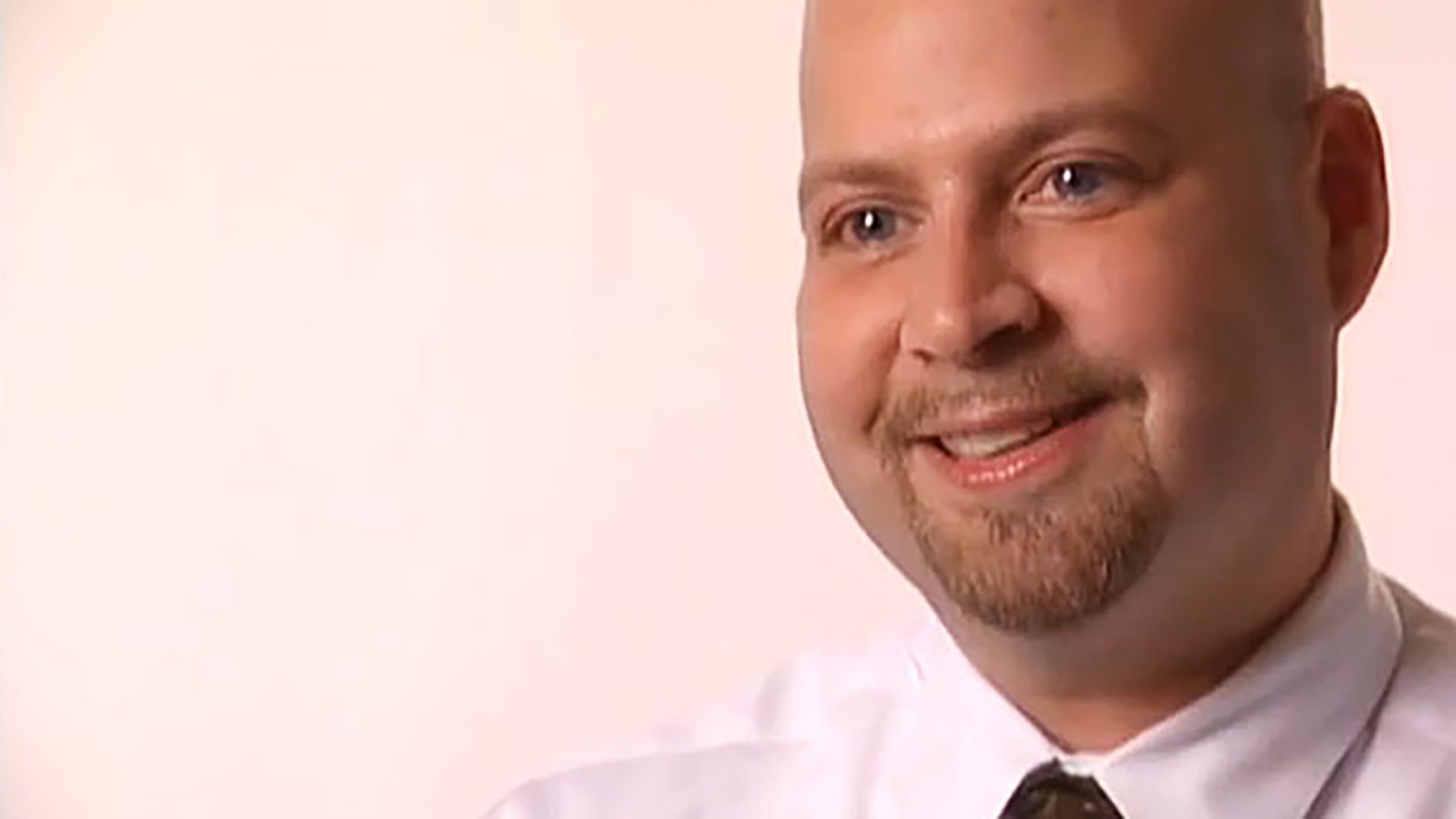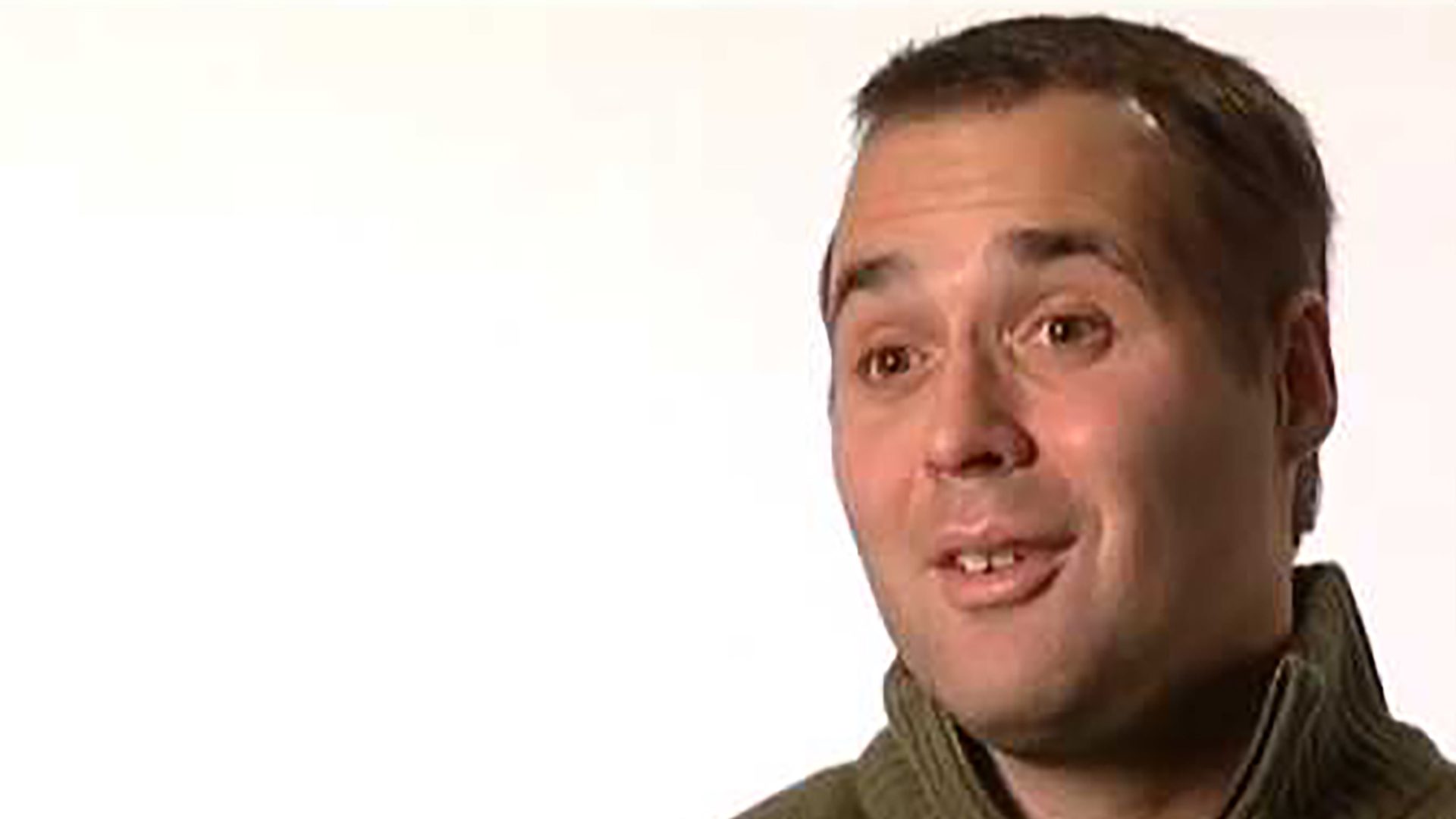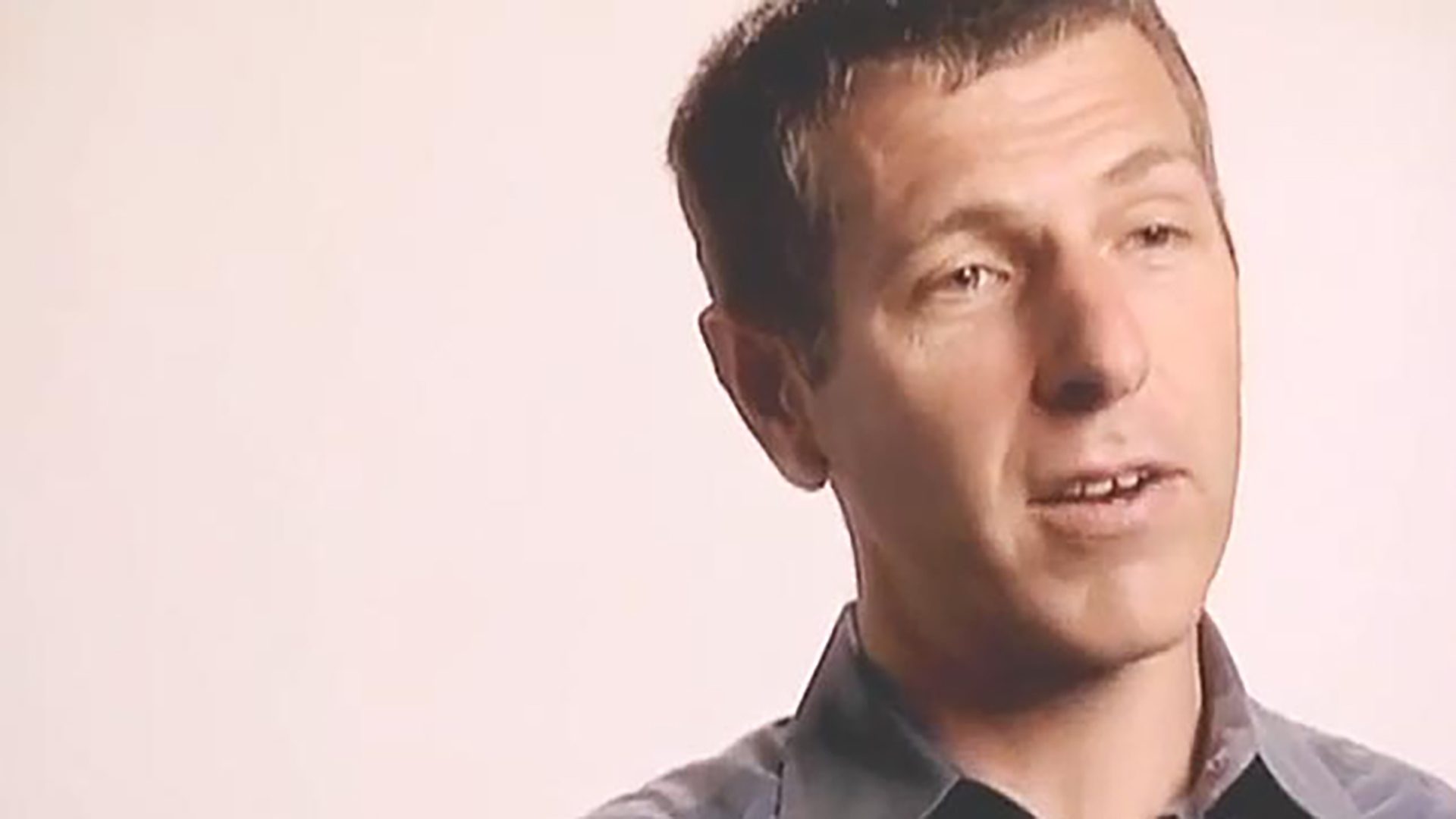Survivor Interview – Craig L.
Craig, a brain tumor survivor, was shocked by the discrimination he experienced at work as a result of his cancer. He also discusses hair loss.

I have no pituitary function, which means that gland doesn’t produce hormones anymore, so I have to take a number of different medications or my body can’t function properly. My thyroid gland doesn’t function; my adrenal gland doesn’t function. After learning that I had permanently lost the function of my pituitary gland, I think I began to quickly understand it’s a chronic disease, but it’s not something that I feel is a burden every day. I’ve had to simply integrate into my lifestyle the things that I need to do to keep my body functioning normally, and recognize when I may be pushing myself a little bit too hard and medication can’t compensate.
In general, I can do just about everything that folks with a normal, functioning hormonal system can do, but I need to recognize that I must take my medications at the time that’s indicated, and if I’m going to be in a stressful situation physically or emotionally, I may need to make changes to the doses. I work very closely with my endocrinologist. So it’s really about understanding my body and the way it works, and not allowing the limitations of my body to limit me and what I can do.
Because I received radiation to the spine, it affected my stomach and my intestines, and so I had kind of a peculiar and silly side effect: very, very severe hiccups, which went on 24 hours a day. It happened six weeks after I was done with all the surgery and radiation and chemo, but it was really, in a lot of ways, the worst thing that happened to me. Believe it or not, what they give you for “intractable hiccups” is actually an anti-psychotic. It has the effect of stopping the muscular reaction that’s happening, but it also has this terrible impact on your whole being, because your ability to emotionally function is closed down. It was a very scary experience, and something that, unfortunately, I wasn’t well-prepared for and neither were my caregivers. Thankfully, that has never returned.
Something that I struggle with is identifying what part of how I may feel and the reaction my body may have is related to the disease and treatment, versus what may be simply a normal part of aging. I think, as I talk to other young adult survivors, that’s something we all struggle with, because you expect certain things to happen as you grow older. But it’s important to understand what’s happening to your body and how you can take positive steps to alleviate some of those symptoms.
I’ve lived for over ten years now without my hair. I have tried to grow it back a couple of times over the years, but it doesn’t grow back terribly well. So, now I just shave off what comes up. I was at the airport, and the guy who was taking our boarding passes was also bald or shaved head, and he said to me, “Oh, you’re too sexy for your hair, too.” I love that line, because I think it’s so important to laugh about all this. My family does, too, and it’s very odd when somebody breaks their leg or something and we laugh about, “Well, at least it’s not a brain tumor.” But to talk about these funny things that happen and the way the world reacts to you is very important for me as a survivor.
Especially as a young adult, when we’re coming into our own as individuals, it is a very difficult experience to lose control of your body and to allow people to do some pretty awful things to it, as well as losing control over other parts of your life because you have to devote most of your time to getting well. It took me some time to work through that and say, “I’m beyond that, I have control of my life again, and I can be a determiner of my own destiny again.”
I also know that it changed relationships I had with people. I worked through relationships with friends and family who didn’t have cancer, especially friends in my own peer group who found it hard to watch me, a young adult like them, with a life-threatening disease. Our generation of young adults with a cancer history doesn’t necessarily fit the traditional treatment molds of either being among people who are often twice or three times our age, or in the environment of the real young ones.
I don’t use the word “cured,” but I will say that my cancer is in remission. I think that, essentially, I live in day-to-day fear, in part, because I did go through a recurrence. It was a real difficult experience the second time for my family and friends, because I think for them all of the hope of the miracles of modern science went out the window, and it was really a greater fear that I was going to die.
I had gotten my control back that second time because, during those couple of years of treatment and then having a break, I had really learned a lot about my disease. So when it came back and there was no standard protocol for what to do, I really negotiated what was going to happen with my doctors. It was particularly important then to get the second opinion; to really understand what my options were, not simply accept the recommendation of my treating oncologist. Not that I didn’t trust him, but I needed to feel in control, and I needed to feel really comfortable with that decision, understanding that I was again going through a lot of pain and a lot of recovery time.
You can beat it twice. That’s not to say that the struggle isn’t as difficult again, or maybe harder. But I think that you can learn from your first experience and, if you are struck by it again, take that experience and make sure that you feel comfortable with what you’re going to do the second time around. Be even more a part of the decision-making than you were perhaps the first time around, when it caught you by surprise. So use your experience in a way that can be positive and help you to get through it in as healthy a way as possible, and to make it as easy a journey as possible.
I received extraordinary support from my co-workers during the time that I was being treated, but there were problems. I remember the first year when I was diagnosed and going through treatment I got an award for, you know, best employee in my category or whatever it was, and that meant so much to me, because I had done everything possible to maintain normality in my work life. And then my direct supervisor at the time decided that maybe I wasn’t “reliable,” and spread that to other people in the organization. Yes, I needed little time-outs to deal with my treatment and side effects but, by and large, I was there and doing everything I had done before, as well as I had done it before. After she did that, it was very hard for me to move forward there, and eventually I had to leave in order to find new opportunities and grow professionally.
I’ve had to come up with strategies when I’ve wanted to change jobs. I think other young adult survivors also feel that you can be locked into a job for fear of losing your insurance. They may want to change jobs, as many young people do frequently, and they shouldn’t be denied the right to do that because of these issues around health insurance. I think until we have better systems, at least, we need to educate them about strategies for ensuring that they don’t lose coverage at critical periods.
Survivorship really is more than just surviving, you know, like you were on the TV show, and you ate all the snakes and you managed to stay alive. I think that it’s about taking your experience and making lemonade out of the lemons. Saying that if you got through this difficult time in your life you should take from it what you can and try to make the most positive experience from it as you can. Giving back to others who have cancer or working with other worthy causes, I think it’s trying to go forward with a sense of purpose in your life and a perspective that doesn’t live in fear of disease not to be unrealistic about it but that puts it in the right place and allows you to move forward and go on with the rest of your life and hopefully get even more out of it than you would have prior to cancer.
My name is Craig Lustig, I’m 39 years old, and I’m a brain tumor survivor.

